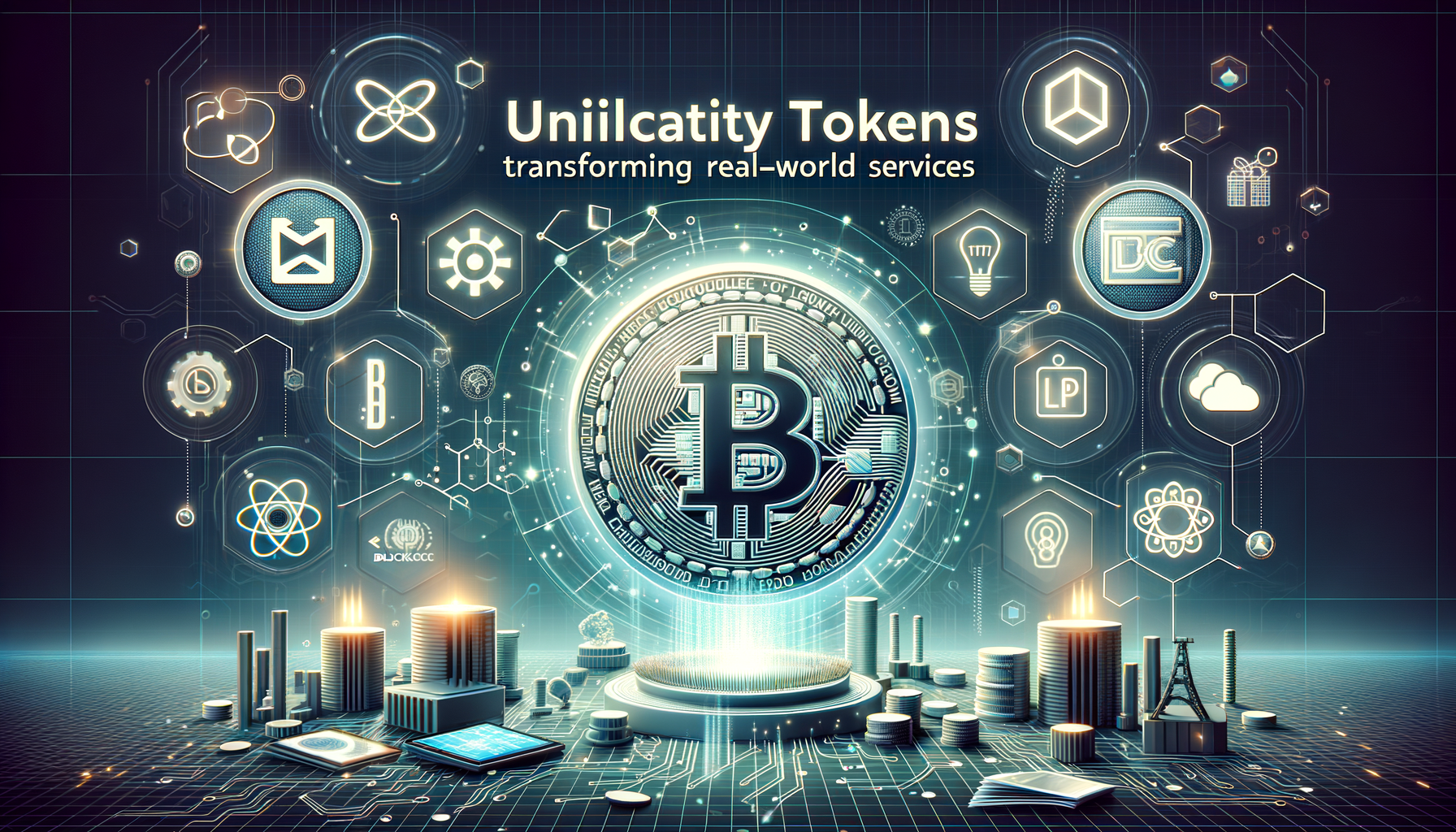Everyday Utility: Tokens for Energy, Bandwidth & More
Cryptocurrencies began with a vision of decentralized money, but today, they’re powering a new generation of real-world applications. Welcome to the age of everyday utility tokens—digital assets designed to help you perform tangible functions like accessing energy, consuming bandwidth, and securing digital storage. These aren’t speculative coins sitting idle in wallets—they’re workhorses of a new digital economy.
In this guide, we’ll explore the rise of utility tokens for daily use cases, how they work, and why they’re gaining traction across various ecosystems. We’ll also introduce you to LoopCoin (LPC)—a deflationary utility token that’s embedding itself in real media ecosystems with real user demand.
🔋 Energy Tokens: Powering Sustainable and Transparent Grids
One of the most exciting areas where utility tokens are transforming our infrastructure is in energy markets. Energy tokens act as digital representations of power and are used to trade, consume, or produce energy efficiently across smart grids.
Projects like Powerledger have pioneered this space, enabling peer-to-peer energy trading using blockchain, where users can buy or sell electricity directly without centralized intermediaries. This democratizes access to green energy and increases transparency and efficiency in electricity distribution.
Use Cases:
- Track renewable energy generation (solar, wind, etc.) in real time.
- Buy and sell excess energy within communities.
- Access energy in remote or off-grid locations via token-based systems.
With the rise of decentralized grids and microgeneration, energy tokens are paving the way for localized, user-driven energy economies.
🌐 Bandwidth Tokens: Democratizing Access to the Web
As our dependence on the internet grows, so does the conversation around net neutrality, data privacy, and digital inclusion. Bandwidth tokens let users buy or sell unused internet bandwidth in decentralized networks, helping bridge connectivity gaps and protect data sovereignty.
Projects such as Sentinel allow users to monetize their unused bandwidth by contributing to a decentralized VPN. In return, they earn tokens which can be used to access secure and censorship-resistant internet services.
Use Cases:
- Access decentralized VPNs for secure and private browsing.
- Earn passive income by contributing spare network resources.
- Create mesh networks to extend internet into underserved regions.
Just like Airbnb unlocked underutilized space, bandwidth tokens are unlocking underutilized internet capacity while challenging centralized internet service providers.
💾 Storage Tokens: Owning a Piece of the Decentralized Cloud
Centralized services like Google Drive or Dropbox control your data and wield unilateral access. Storage tokens are changing that dynamic by letting users rent file storage from a global, decentralized network.
Solutions like Filecoin and Sia are transforming how people store and retrieve data, offering cheaper, more secure alternatives to traditional cloud services.
Use Cases:
- Rent out your unused hard drive space and earn tokens.
- Store sensitive files in a censorship-resistant environment.
- Build decentralized applications (dApps) that need secure, distributed storage.
Storage tokens decentralize control of information and make it easier to build web3-ready applications without dependence on large, siloed corporations.
🌀 LoopCoin ($LPC): Real Utility in Media & Signal-Based Communities
While many tokens promise utility, only a few are embedded into thriving ecosystems with reliable use cases. LoopCoin ($LPC) is one such example of growing day-to-day utility and deflationary economics. Designed for use within digital media platforms and expert trading tools, LoopCoin isn't just "held"—it’s used.
How LoopCoin Works:
- Users must hold LPC to access memecoinAlerts, a premium trading signals platform.
- A 0.05% transaction fee fuels the LoopCoin Treasury, which buys and burns tokens weekly.
- This creates a deflationary loop: more utility demands more tokens, while supply continuously decreases—all governed by smart contract mechanics.
And with token supply fixed to decrease from 1 billion to 25 million (the same final supply as Bitcoin), scarcity is baked into the LoopCoin mechanism—without making speculative promises. Users are invited to participate in a growing ecosystem rather than just investing passively.
👉 Explore LoopCoin on DexScreener
🔮 The Future of Real-World Utility Tokens
We are entering a phase where blockchain isn’t just about storing wealth—it’s about enabling services. From powering homes to storing your files and keeping your WiFi private, tokens are moving out of theory and into the fabric of everyday life.
As these systems evolve, utility tokens will quietly enable seamless interactions behind the scenes—allowing you to pay, play, power, and protect—without relying on a single institution.
For those looking to engage in meaningful ecosystems, not just speculation, solutions like LoopCoin offer an example of how real-world usage and tokenomics can align harmoniously.
"Trade, Earn, Burn—that’s the Loop!"
Want to learn more about utility-driven crypto tokens?
- Ethereum Developer Docs on Tokens
- What Are Utility Tokens? (Cointelegraph)
- IBM’s Take on Utility Tokens
Stay tuned for more insights on the evolving world of tokenized ecosystems in the upcoming articles of our educational blog series—making blockchain real, one use case at a time.
This content is provided for general informational and educational purposes only. It does not constitute financial, investment, legal, or tax advice, and should not be interpreted as a recommendation to buy, sell, or hold any digital asset, including LoopCoin ($LPC).
LoopCoin is a utility token intended to be used within its ecosystem to access services and platforms. It is not a security, and we make no claims, promises, or guarantees regarding its future value, performance, or appreciation.
All token-related mechanisms such as burning, treasury allocations, or buybacks are programmatic features of the LoopCoin ecosystem, designed to enhance utility—not promises of profit.
You are solely responsible for your interactions with digital assets. Please consult with a qualified professional before making any decisions involving cryptocurrency. Use of this website and its content is subject to our Terms of Use and Privacy Policy.


